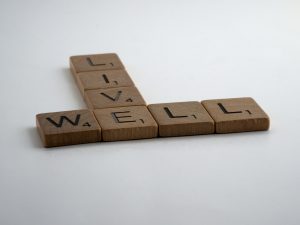(Photo: Natalie Grainger)
As someone who has personally suffered from and eventually escaped the diet roller coaster, and who has professionally been on a mission to help others get off it too, it’s no surprise I follow many anti-diet voices on social media –many of whom are nutrition experts. I am usually all nods when scrolling through their posts, but a recent trend of messages unsettled me. At first glance, they seemed to go beyond anti-diet and verge on anti-healthy. The gist of one was the proclamation that any attempt to lose weight is a diet. Think about that for a second. If diet a four letter word, then the message posted is that trying to lose weight at all —even in a healthy way–is something to be condemned. It got me wondering whether the anti-diet movement has gone too far. Should people really be discouraged from pursuing weight loss, even on a sound lifestyle plan, when it could lead to better health– less knee pain, getting off blood sugar medications, reducing the risk of a heart attack, and so on? To dig deeper, I spoke with several thought leaders on the issue and ultimately came to the conclusion that the post was onto something: while weight matters when it comes to health, the true path to wellness may be to not try to lose weight at all.
“Overweight and obesity are serious threats to health.” says Dr. Walter Willett, professor of epidemiology and nutrition at the Harvard Chan School of Public Health, “If we really care about someone we want them to be as close to a healthy weight as possible; there is absolutely no question.” Research links excess weight with higher mortality, higher rates of many cancers, diabetes, cardiovascular disease, and a reduced overall quality of life. While not all experts agree on the extent that weight impacts health in comparison to other factors, the data is clear that it matters. But the number on the scale is only one indicator of wellness. “No matter what your weight is you can improve your health by being physically active, eating a healthy diet, and not smoking,” says Willett.
Actively trying to control weight may be an effective tactic for some people, but for others it can be downright destructive. A 2005 study published in the American Journal of Clinical Nutrition noted that about 20% of overweight people are successful at long term weight loss. But what about the other 80% who tried but didn’t lose weight at all or put it right back on? Many in that group (and possibly some “successful” weight losers too) wind up perpetually struggling, constantly anxious about food, and dissatisfied with their bodies. Some develop eating disorders. Many heal and become the anti-diet voices on my Instagram feed. Tied into the personal struggle is the pressure from our profoundly weight-biased society where size-based discrimination is the norm.

Photo: Brett Jordan
It’s no wonder so many people are pushing back and essentially flipping the middle finger at our diet and weight obsessed culture. But while that stance may be a needed and important activism, an unfortunate downside is that for some it has meant the rejection of any conversation about health, weight related or not. Jessamyn Stanley, author of Every Body Yoga told me, “It almost like there is a wall where you can’t talk about healthy eating at all in fat-positivity communities. It’s like you are creating an unsafe environment by talking about healthy eating.” She sees a solution to breaking down those walls in acceptance and self-care. “When you love yourself you want to fuel yourself well– you want to take that care for YOU.” Rebecca Scritchfield, RDN a Washington D.C. based dietitian and author of Body Kindness agrees: “If we broaden the view of health beyond weight or appearance we will all be free to pursue health in our own individual way.”
With that in mind, abandoning weight loss as a goal—taking it off the table completely— and refocusing on personally meaningful, healthy behaviors seems like our best shot at true wellness. Dr. Sandra Aamodt, PHD, neuroscientist and author of Why Diets Make Us Fat, says “A lot of the health problems we associate with obesity are actually a consequence of not getting enough exercise. It’s crazy that as a society we have chosen to focus on weight loss rather than improving fitness and nutrition which are easier and more important.” She suggests making concrete, positive fitness goals: “Sit down and make a list of the things you’d like to be able to do that you can’t do now—whether it is to walk a few blocks without running out of breath, give a kid a piggy back ride or run a 5K—have something you are pulling toward.”
Stanley suggests doing some research online, or asking friends, to find a fitness community that welcomes people of all sizes so you know you are walking into a positive, non-judgmental environment. “The fitness industry has profited for a long time on people believing they are not satisfactory. You are already awesome when you walk into the space. The reason to go should be to have fun.”

Photo: Patrick Hendry
For her, it was yoga that got her to pay attention to how food affects her body. She was more comfortable doing inversions and felt more energized after yoga when she ate well. It is that kind of internal, personal motivation that can really stick, as opposed to being motivated—or tortured– by the number on the scale. Aamodt says “People make all these behavioral changes then quit because they didn’t lose weight. When you define health in terms of weight that is the risk you take.” Instead, as Scritchfield suggests, find reasons beyond weight for making changes that matter to you, like better digestion, more energy, better sleeping patterns or having a better attitude toward food. “The key factor is to make choices that fit you best, that make you feel good, and trust that you will be at a weight that is healthy for you.” You certainly don’t need a scale for that.



